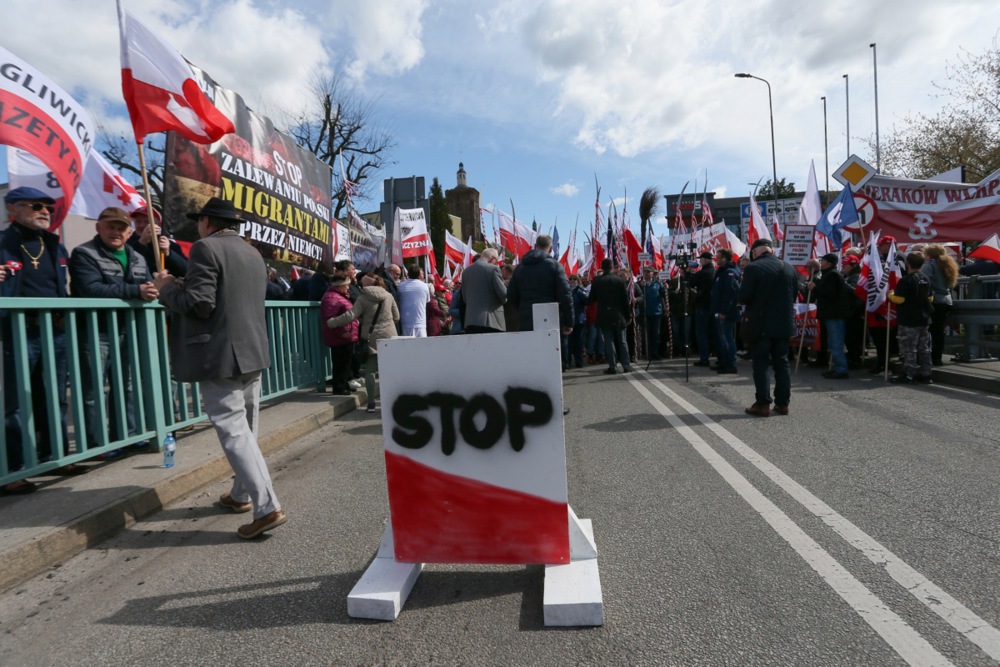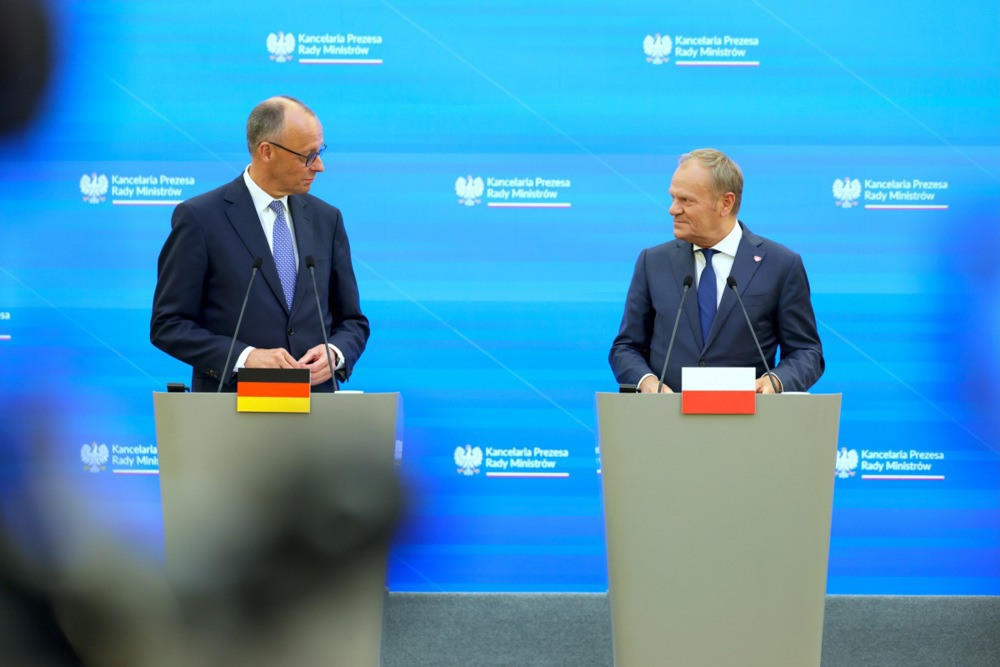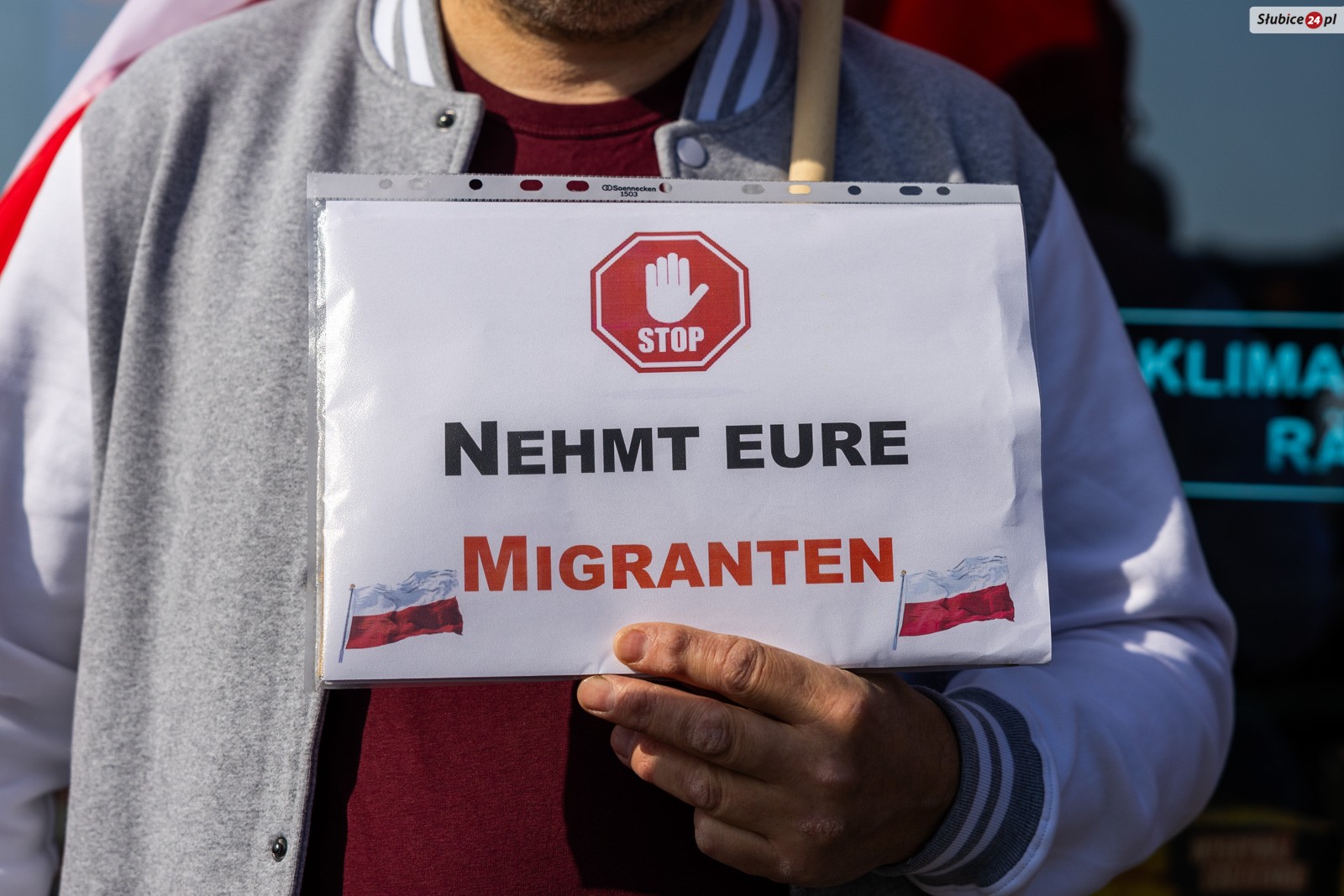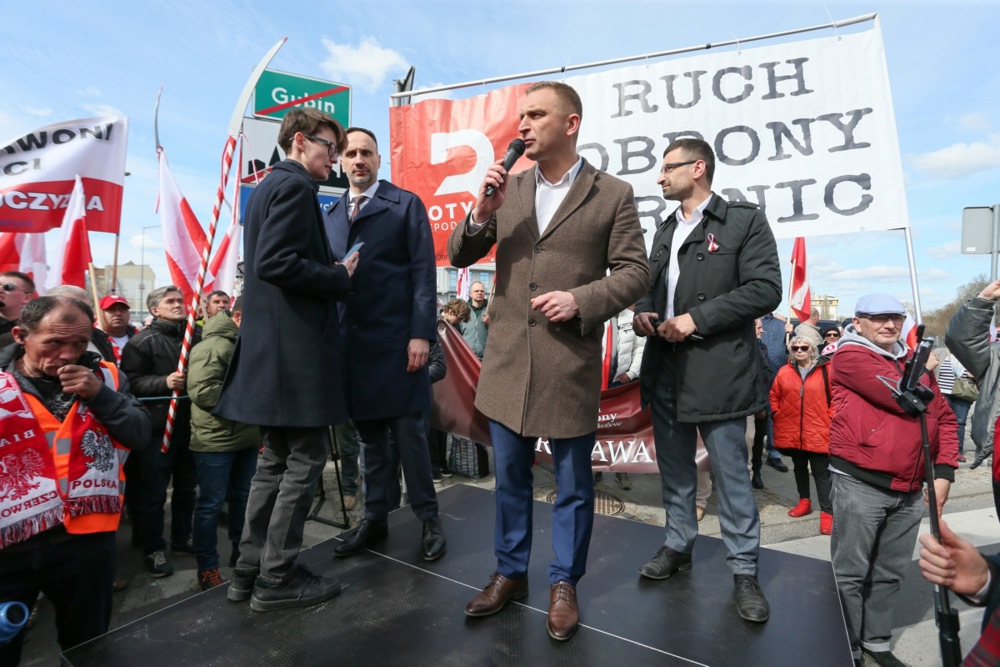Tens of thousands of Poles in 80 cities attended marches against “uncontrolled migration” as slammed by the centre-left government led by Prime Minister Donald Tusk.
The protests took place as more reports emerged about how Germany was pushing back migrants into Poland.
A statement released by the organisers of the July 19 events, the right-wing Confederation party, read: “Poland is becoming increasingly defenceless against the growing wave of immigration …. We don’t want Poland sharing the fate of western Europe.
“The state is failing, so citizens are taking action. Ordinary people from every corner of the country have stepped up with a clear message: We want to be safe!”
Krzysztof Bosak, one of Confederation’s leaders, said at the July 19 demonstration in Białystok:“We demand the closure of borders to mass, uncontrolled immigration!
“Enough of the Polish State’s passivity toward those who illegally invade our territory!
“Poles have the right to care about the security of their homeland. There is no hatred in this stance, despite what others may suggest,” added Bosak.
Another of the group’s leaders, Sławomir Mentzen, who recently came third in Poland’s presidential election polling 15 per cent of the vote, shared footage from his hometown of Toruń.
Toruń przeciwko imigracji! pic.twitter.com/HcNcJolaAs
— Sławomir Mentzen (@SlawomirMentzen) July 19, 2025
The cities of Kraków, Wrocław and Katowice likewise witnessed large marches while dozens of smaller towns such as Płock also hosted protests.
#katowice : Katowice: Dziś w centrum miasta odbywa się marsz sprzeciwu wobec nielegalnej imigracji #ktw #zabrze #centrum #kibice pic.twitter.com/lxgzVtnOQl
— 🆉🅱🆈🆂🆉🅺🅾🅵🅾🆃🅾🅿🅻📸 (@Zbyszko666) July 19, 2025
Setki osób na proteście przeciw imigracji w Płocku! pic.twitter.com/NdHV8vce7n
— Marek Tucholski 🇵🇱 (@tucholski_marek) July 19, 2025
In Warsaw, the anti-immigration march was met by an opposing “Stop Fascism” demonstration made up of around 100 people with its organisers claiming: “The real threat is fascists, not migrants. It’s fascism that is the crime, not migration,” and “xenophobic messaging”.
The Confederation party’s anti-migrant demonstrations were slammed by officials from Tusk’s centre-left Civic Coalition (KO).
“Recently, we hear almost daily in Poland about various incidents and assaults, largely motivated by the colour of someone’s skin,” said justice minister Adam Bodnar.
“Police and prosecutors should consistently intervene in such situations and work to ensure respect for public order and Polish law.” He added that events such as the marches resulted in hate speech and a rise in xenophobia.
Meanwhile, an investigation by the Conservative portal Niezależna has revealed that the German federal police were conducting spot checks on German territory within a 30-kilometre zone from the border into German territory.
PiS MP Paweł Jabłoński condemned such German practices and urged the Polish Government to respond.
“Germany admits that the transfer of migrants to Poland is not just a case of ‘refusals at the border’, they’re picking people up deep within their own territory and using a legal trick to claim the detentions occurred at the Polish border. We must immediately suspend the bilateral border cooperation agreements with Germany,” he said.
According to journalist Aleksandra Fedorska, who has covered the situation at the border extensively in Polish media, the German interpretation “bypasses the safeguards provided in asylum procedures or readmission regulations and expedited deportations, such as under the so-called zurückweisung [refusal of entry at the border], without initiating formal deportation or removal proceedings”.
“This is currently the most common method being used to return individuals to Poland, and it is notably absent from official figures, which instead only report readmissions under the Dublin procedure for returning asylum seekers to their first port of call,” she added.
Poland has in recent years experienced some of the highest levels of migration in the European Union because of the Ukraine refugee crisis and demands of a buoyant labour market.
In the past eight years Poland has topped the league for the issuing of residence permits for migrants from outside of the EU and since 2021 it has faced a crisis on its eastern border which it accuses the Belarussian regime of engineering via facilitating arrivals and transfers to the border of migrants from the Middle East, Asia and Africa.
But since 2023 it has also been facing a crisis on its western border with Germany because its western neighbour has been sending, allegedly even pushing back, thousands of illegal migrants to Poland.
The allegations and the organisation of a 7,000 strong Border Defence Movement (ROG) eventually led Poland to introduce its own controls on the borders with Germany and Lithuania in July, banning asylum claims for those attempting to enter from Belarus and to tighten up on the issuing of worker and student visas.





